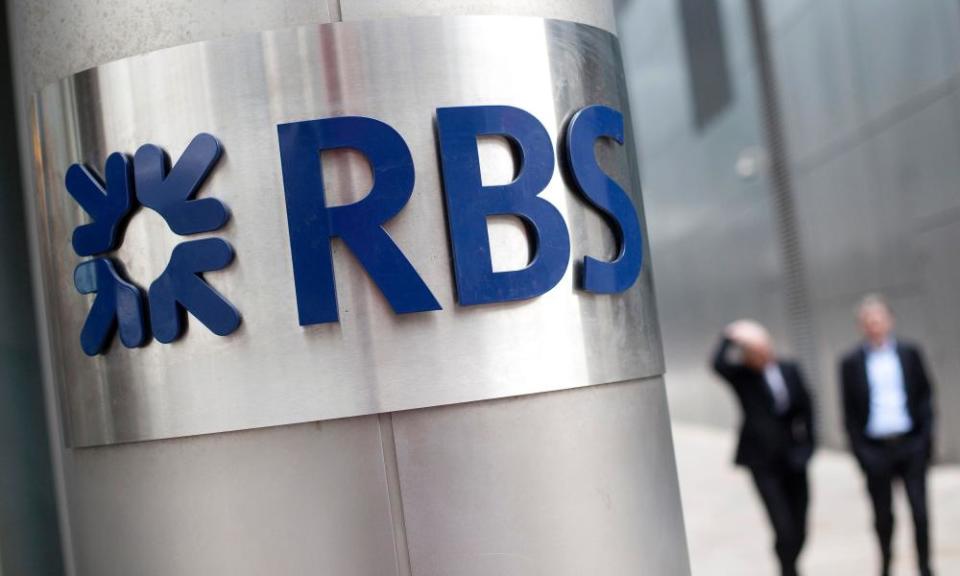Who presided over the RBS scandal?

Choose your own best illustration of the underhand and devious techniques employed by Royal Bank of Scotland’s Global Restructuring Group to gouge small business customers via fees, made-up penalties and punitive interest rates. There are dozens in the regulatory report that – finally – has been put on public display.
Here’s a contender from the infamous “Just Hit Budget” memo: “Be specific: avoid round number fees – £5,300 sounds as if you have thought about it, £5k sounds like you haven’t.”
That perfectly captures GRG’s spirit of cold calculation. That the customer should be screwed was a given. It was just a technical matter, with little subtlety required, of how to maintain the pretence that GRG was merely engaged in the everyday business of recovering a bad debt.
A team leader is a junior job, so the relevant question is who was orchestrating affairs. Who was doing the real thinking – not about the merit of charging £5,300, but about creating or tolerating a culture in which “widespread” and “systematic” bad treatment of customers could flourish?
The report for the Financial Conduct Authority from the specialist agency Promontory is commendably clear that accountability should go to the top. The failings “were not the one-off errors of staff”. Rather, GRG and RBS failed “to put in place the appropriate governance and oversight procedures”. GRG management “was aware (or should have been aware) of these issues”. There was “an intentional and co-ordinated strategy” to focus on GRG’s commercial objectives and to place “inadequate weight” on the interests of customers.
The Promontory report doesn’t point fingers at senior individuals, since that is the FCA’s job. The regulator, which seems to have accepted the basic veracity of the report, must now complete its “focused” investigation as speedily as possible.
The top duo at RBS in the 2008-13 period under review were the chairman Sir Philip Hampton, who now chairs GlaxoSmithKline, and the chief executive Stephen Hester, who runs insurer RSA these days. Both may have been far away from the frontline at GRG but it is surely reasonable to expect them, even amid the chaos and confusion at post-crash RBS, to have asked how their restructuring unit was managing to spit out surprisingly large profits.
Then there’s Nathan Bostock, head of restructuring and risk at RBS and thus more directly tied to GRG. His case is the most pressing since he’s still in the banking game. He is chief executive of Santander UK, a bank with ambitions to be bigger in lending to small businesses.
The FCA is handicapped in two ways. First, commercial lending is not a regulated activity, even when the businesses are sometimes so small that they’re more akin to retail customers. Second, 2008-13 was another regulatory era; under the old rules an individual had to be shown to be culpable, which required a high burden of proof. It is only since 2016 that specific responsibilities at big banks have been pinned on senior individuals, making sins of both commission and omission easier to identify.
Those are the obstacles facing Andrew Bailey, chief executive of the FCA. His task is not easy, but he will know that the public will be outraged if yet another tale of bad banking dribbles into the sands of collective responsibility. Santander’s board, however, can’t wait until the FCA opines. Now that its business customers can read the Promontory report in full it must decide whether Bostock is still a credible boss. The question is best answered sharpish – like, within days.
Treasury and Charles Randell’s Ingenious investment
In other FCA news, we learn that the incoming chairman Charles Randell used one of those film-related tax avoidance wheezes beloved by certain celebrities and footballers. It was “error of judgment”, he concedes, and he had to repay the tax when HMRC clamped down on Ingenious Film Partners 2 LLP.
The curious part of the affair, however, is that Randell disclosed his Ingenious (the clue was in the name, surely) entanglement at his job interview at the Treasury but was not asked about the sums involved. The detail of the tax repayment – a cool £114,000 plus interest – only emerged in later correspondence prompted by the Treasury select committee.
Maybe the Treasury’s assessment panel thinks it was jolly sporting of Randell to cough up in the first place and thought that asking for actual figures would be vulgar. But £114,000 is serious money in the real world. Are all Treasury interviews so soft?

 Yahoo Finance
Yahoo Finance 